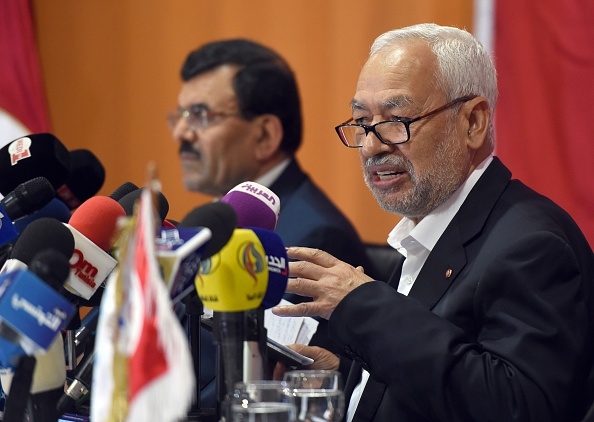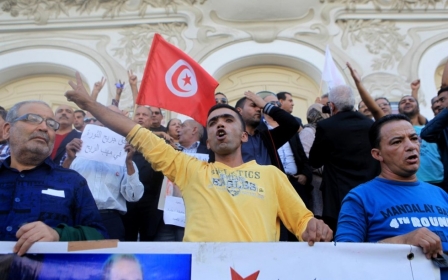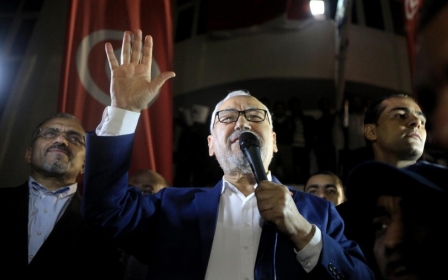Ennahda leader raises concerns of one-party rule after Tunisia polls

Rachid Ghannouchi, the leader of Ennahda who conceded defeat this week in the Tunisian legislative polls, has warned that there are “fears of a return to despotism” and one-party rule in the country, and criticised his main political rivals for "exclusionary statements" of late.
Ghannouchi was speaking at a press conference in the capital Tunis on Thursday, after the election results were officially announced.
His party secured 69 out of 217 parliamentary seats in Sunday’s vote, coming second to Nidaa Tounes, who won 85.
The elections were widely considered a success, with no significant outbreaks of violence and a turn-out of around 60 percent.
Following the elections, it is expected that Tunisia will be ruled by a coalition government, though it is not yet clear which groups would participate in the alliance.
In his comments on Thursday, Ghannouchi hinted that Ennahda would demand a coalition government, but did not state with which parties his Ennahda would join.
“There can be no return to the past – efforts will continue to realise the freedoms brought by the constitution," a landmark document signed in February 2014 after two years of bargaining.
He warned that there are “fears today of a return to despotism, one-party rule and dominance over state institutions".
Ennahda won a plurality in the 2011 elections and subsequently formed a government with two secular parties, Congress for the Republic (CPR) and Ettakatol (Democratic Forum for Labour and Liberties), known as the troika.
After mass demonstrations last year, sparked by the assassination of two politicians, Ennahda stepped down from power in December favour of a technocratic cabinet.
Asked whether Ennahda would consider joining a coalition with Nidaa Tounes, Ghannouchi said his party was “open to all choices, regardless of their position – the important thing is to serve the people.”
However, in comments made later to pan-Arab daily al-Sharq al-Awsat, Ghannouchi hit back at recent statements main rivals Nidaa Tounes, accusing “leading figures on the left”, within the party and outside it, of making “exclusionary” statements.
Nidaa Tounes leader Beji Caid Essebsi, an 87-year old veteran of Tunisia politics who served in several positions under Ben Ali, said this week that his political opponents are “opponents of modernity, and loyal to the Ennahda movement.”
Responding to Essebsi’s comments, Ghannouchi said that “Tunisia’s democracy is transitional, and cannot stand a return to conflict – a small majority is not enough to lead in the coming period.
“The solution is in an agreement based on mutual trust between various actors.”
Middle East Eye propose une couverture et une analyse indépendantes et incomparables du Moyen-Orient, de l’Afrique du Nord et d’autres régions du monde. Pour en savoir plus sur la reprise de ce contenu et les frais qui s’appliquent, veuillez remplir ce formulaire [en anglais]. Pour en savoir plus sur MEE, cliquez ici [en anglais].




